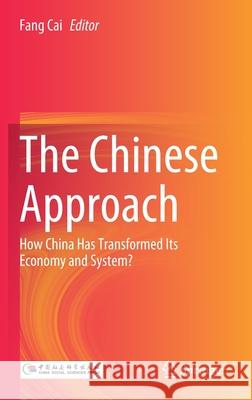The Chinese Approach: How China Has Transformed Its Economy and System? » książka
topmenu
The Chinese Approach: How China Has Transformed Its Economy and System?
ISBN-13: 9789811618987 / Angielski / Twarda / 2021 / 389 str.
Kategorie:
Kategorie BISAC:
Wydawca:
Springer
Język:
Angielski
ISBN-13:
9789811618987
Rok wydania:
2021
Wydanie:
2021
Ilość stron:
389
Waga:
0.76 kg
Wymiary:
23.39 x 15.6 x 2.39
Oprawa:
Twarda
Wolumenów:
01
Dodatkowe informacje:
Wydanie ilustrowane











